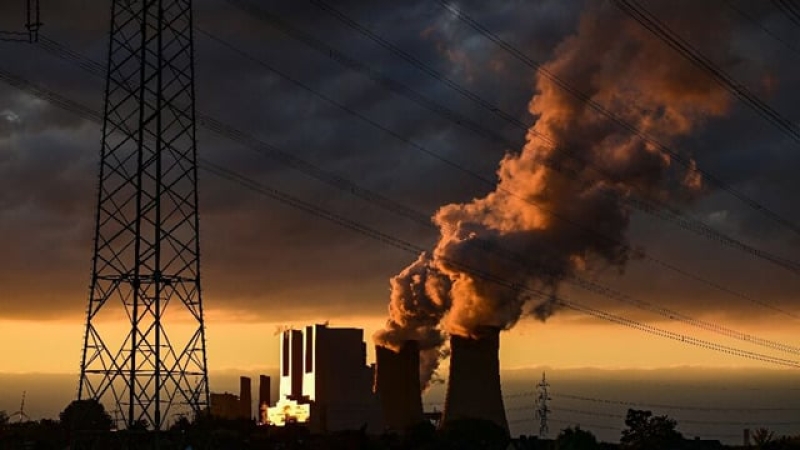- BNP senses ‘dangerous conspiracy’ against democratic transition |
- CEC Vows Credible Election to End Stigma |
- High-level meeting reviews country’s economic progress |
- Dhaka suspends visa, consular services at its Delhi, Agartala Missions |
- Govt to cut savings certificate profit rates from January |
Global warming accelerating at 'unprecedented' pace: study

Global warming has accelerated at an"unprecedented" pace as the window to limit rising temperatures within internationally-set targets closes, over 50 leading scientists warned in astudy published on Wednesday.
Looking at decade averages, temperatures climbed 0.26 degrees Celsius from 2014 to 2023, said the study published in the journal Earth System Science Data.
In that same period, average global surface temperatures reached 1.19C above the 1850-1900 pre-industrial benchmark for measuring a warming world, reports BSS.
It marks an increase from the 1.14C reported last year for the decade up to2022.
"Human-induced warming has been increasing at a rate that is unprecedented in the instrumental record," the study said.
The study is part of a series of periodic climate assessments designed to fill the gap between UN Intergovernmental Panel on Climate Change (IPCC)reports that have been released on average every six years since 1988.
It came as diplomats from around the world were meeting in Germany this weekfor midyear climate talks ahead of the UN COP29 summit in November in Baku,Azerbaijan.
The 2015 Paris Agreement that resulted from a previous COP summit sawcountries agree to cap global warming at "well below" 2C above preindustriallevels, while striving for the safer limit of 1.5C.
Wednesday's report found that, by the end of 2023, human activity had pushedtemperatures 1.31C above the preindustrial level.
Earth warmed a total of 1.43C with other naturally-occuring drivers --including the El Nino weather phenomenon -- taken into account.
- Carbon budget spent -
Another factor contributing to the heat is the decline in certain pollutingparticles in the atmosphere that reflect some of the Sun's energy back intospace, the study found.
"The main reason is cleaning up of air pollution, first in Europe and the US(acid rain) and more recently in Asia, particularly China," Glen Peters ofNorway's CICERO Center for International Climate Research told AFP.
Tightening of global shipping regulations and the decline of coal-firedenergy have also contributed to a drop in sulphur dioxide emissions, whichalso had a cooling effect.
But by far the primary driver of global warming was "greenhouse gas emissionsbeing at an all-time high", the study said.
Average annual emissions for the 2013-2022 period were 53 billion tonnes ofcarbon dioxide and the equivalent in other gases -- primarily from the use offossil fuels like oil and gas, the report said.
In 2022, emissions amounted to 55 billion tonnes.
It means that the world's carbon budget -- the estimated amount of greenhousegases that can to be emitted before driving the planet over the 1.5Cthreshold -- is "shrinking fast", the study warned.
In 2020, the IPCC calculated the remaining carbon budget in the range of 500billion tonnes of CO2.
By early 2024, the budget had decreased to around 200 billion tonnes, thestudy said.
The report's lead author Piers Forster said there is a "bit of optimism" atleast in one finding.
The rate at which emissions have grown in the most recent decade appears tohave slowed since 2000, which he said signals "we're not necessarily going toget a big, increasing acceleration of climate change".
However, co-author Pierre Friedlingstein, told a press briefing that theslowing is not enough to avoid climate change.
"We don't need emissions to be stable. We need emissions to go down to netzero," Friedlingstein said.
"As long as emissions continue at the same level, the warming will continueat the same level."
Without significant change in emissions, the 1.5C threshold would be breachedand become a "long-term average" within the next decade, he added.

